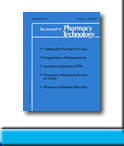 |
 |
DEVELOPMENT AND TEST OF
A MODEL TO PREDICT ADHERENCE TO A MEDICAL REGIMEN
David
H Gustafson, Pauley R Johnson, Todd D Molfenter, Tim Patton, Bret R Shaw, and
Betta H Owens
To request full article click here.
OBJECTIVE:To develop a predictive model that projects patient adherence to new and existing medication regimens.
METHODS:A panel of adherence experts was convened to develop a decision theoretic model to predict and explain patient medication adherence behavior. Two predictive models were developed: one for patients new to their regimen and one for patients on an existing regimen. The models have 12 and 13 predictive factors of adherence, respectively. The panel developed levels for each factor and diagnostic value estimates for each level.
Results:Both models were tested by having randomly generated hypothetical patient medication adherence profiles scored by the model developers and a separate panel of healthcare practitioners. These scores were then compared with predictions made by the model. For the new-to-regimen model, the correlations were 0.86 for the development panel and 0.68 for the healthcare practitioner panel. Only the practitioner panel scored the existing medication model. The model's correlation with their scores was 0.88.
CONCLUSIONS:The medication adherence model seems to have promise as an approach to predicting the likelihood of medication adherence. The model has the benefit of considering many factors of adherence simultaneously. It can also highlight areas that may result in patient nonadherence and suggest potential intervention strategies to enhance patient adherence to a medication regimen.
J Pharm Technol 2001;17:198-208.
To request full article click here.
|
|
|
||
|

